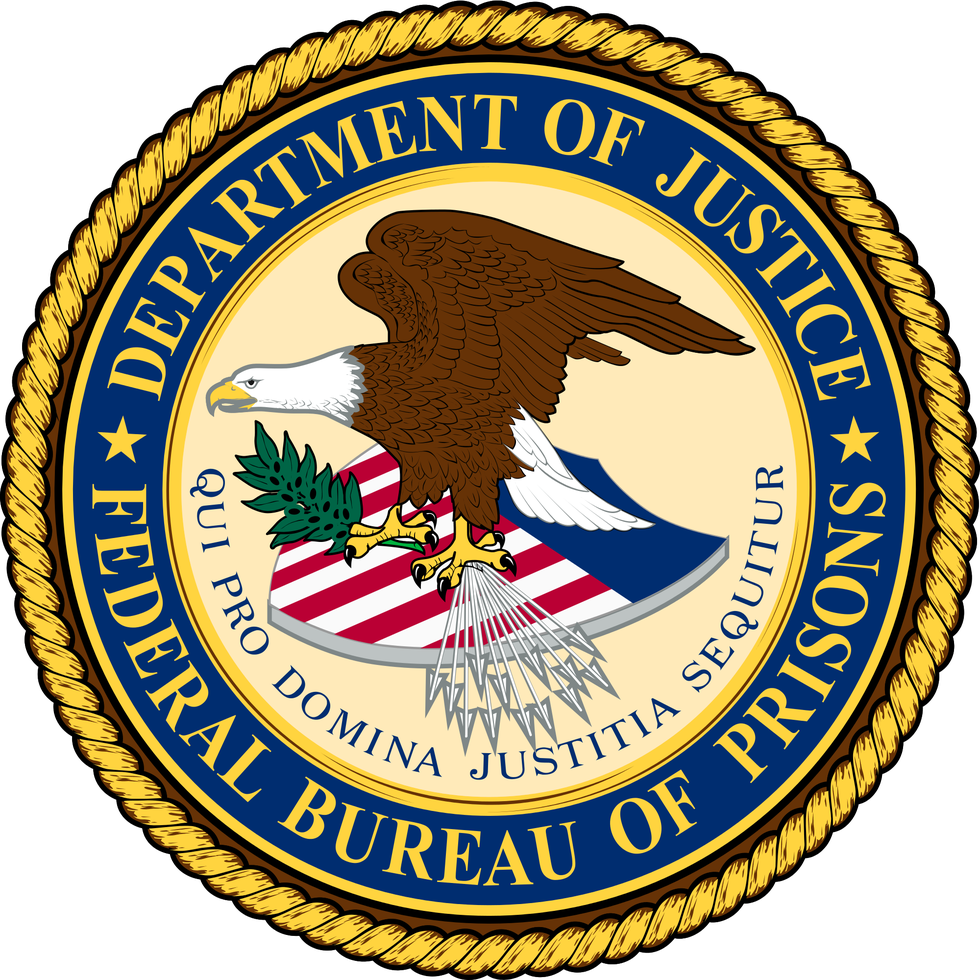In a memo, courtesy of Deputy Attorney General Sally Q. Yates, called "Phasing Out Our Use of Private Prisons," the U.S. Justice Department will attempt to reduce its use of private prisons.
The memo can be read off the Justice Department's website.
She instructed the Bureau of Prisons "as each private prison contract reaches the end of its term, the bureau should either decline to renew that contract or substantially reduce its scope in a manner consistent with law and the overall decline of the bureau’s inmate population."
According to the memo, the goal of reducing the use of privately-operated prisons is "to ensure consistency in safety, security and rehabilitation services by operating its own prison facilities."
Citing statistics, deputy AG Sally Yates informs that between 1980 and 2013 the federal prison population increased 800%. Most of this rise is due to victimless crimes like illicit drug possession and consumption, as the 1970s drug war substantially grew during the '80s.
After over a decade of increased aid from private prisons, the Justice Department is still surpassing its capacity. Economically, there are two major points to be made. First, it shows even with the help of the private sector the public sector is still inefficient. Second, since most of these inmates are incarcerated for victimless crimes, largely due to the failed drug war, it would be prudent to re-examine the unjust federal laws illegally on the books.
As a side note, the U.S. Constitution, which binds the federal government to a code of enumerated powers, does not delegate questions of medicine, agriculture, or morality to the federal government.
Deputy AG Yates credits a 2013 initiative by domestic gun control advocate and international gun dealer Eric Holder, who served as U.S. attorney general from 2009 to 2013, for the reduction in crime.
The Smart on Crime initiative was written during a time when Colorado and Washington State had recently legalized cannabis, Massachusetts legalized medicinal marijuana, Arkansas came close to legalizing medicinal marijuana, and other states were deliberating the same.
According to Holder, the DOJ ought to focus on specific areas of serious offenses, repeat the perceived successes of state governments, and generalize the rest.
The initiative implies non-violent offenders should get little to no sentencing for victimless crimes. Listed are senators who are working to address this very issue: Dick Durbin (D-IL), Mike Lee (R-UT), Patrick Leahy (D-VT), and Rand Paul (R-KY).
But it is riddled with generalizations and talking points, and few specific actual plans. The said plans are about how to grow the state with the help of state and local governments.
A few key facts stand in the way of the Attorney General Loretta Lynch's right-hand official.
First, private prisons only house a small portion of the federal inmate population, while state prisons incarcerate more than the federal government.
Over 157,000 (or 81%) federal inmates are in BOP custody, according to the bureau's statistics. Only approximately 22,000 (or 11%) are held in thirteen contracted private facilities. Not to mention about 14,000 (or 8%) are in "other facilities." Over two million inmates are in state-government prisons.
View the stats here.
Second, private prisons are not entirely private. In fact, they are contracted with the federal government, meaning they have both a conflict of interest and special partnerships with the federal government.
Also, private prisons are heavily-regulated by the federal government. Meaning they operate under strict guidelines of the central government. If there is a big "private prison" problem at the federal level, it is because of the deals made by, not despite of, the federal government.
David Fathi, director of the ACLU National Prison Project, said "For the last 35 years, the use of private prisons in this country has crept ever upward, and this is a startling and major reversal of that trend, and one that we hope will be followed by others."
The ACLU often goes after the federal and state governments over conflicts of interest. But they refuse to do so here, even going as far as helping the left-wing variety of officials by perpetuating the myth private prisons are a big problem.
Remember, the prison-industrial complex requires the government as an accomplice. The whole point of industrial complexes is that it denotes a triad of institutions. The corporatists, the politicians, and the industry in question.
Another major institution that claims it is private, when it is barely even private, is the Federal Reserve. The Fed is a private-public entity, much like "private prisons." A truly-private prison would be open to the laws of supply and demand and competition.
Speaking of corporatism, Jonathan Burns, a spokesman for Corrections Corporation of America, retorted that the "report's authors freely admit that they ‘were unable to evaluate all of the factors that contributed to the underlying data,’ and they failed to account for the impact of elements such as population demographics or the scope and efficacy of efforts to mitigate contraband."
Spokespersons of other prison unions and corporations argue had the Justice Department's memo been about prison populations that would be understandable. This indicates if the drug war was reduced or ended, the prison population would substantially reduce. But the memo is about other findings, including being incomplete.
It should be noted the nominees from both major parties, Donald Trump (R-NY) and Hillary Clinton (D-NY), are connected to the prison-industrial complex. Clinton claims to agree with the memo, but she has ties to the private prison unions and corporations. Both politicians, like prison unions, believe in the corporatist policy of the drug war.
What the Justice Department and its second in command hide is that the contracted prisons usually hold undocumented workers waiting to be deported (the state with the most of these prisons is Texas with five). According to the Bloomberg website, these prisons "are more difficult to manage and more prone to violence because of the entrenched presence of gangs based in Latin American nations."
On the other hand, most federal inmates happen to be non-violent drug offenders. The federal government is comparing apples to oranges. But the DOJ inspector general admitted in a recent prison report that the statistics are flawed.
The IG office stated in the report that they were "unable to evaluate all of the factors that contributed to the underlying data, including the effect of inmate demographics and facility locations."
Jamie Fellner, a prison activist for Human Rights Watch, said, "When private prisons fail as the inspector general suggests was going on with these particular ones, it's not just somehow because private business can't do corrections...The principal overriding reason is...[the Bureau of Prisons] failed to require contractually core best practices and standards; two, failed to supervise; and three, it failed to enforce the contracts. It just kind of keeps rolling over."
In other words, if these private prisons are truly deficient, it is because the contracts do not exhibit higher standards of care and rehabilitation. It should be noted again that these prisons are not truly private, they are offered special protections by the federal government, a public sector entity.
If Deputy Attorney General Sally Yates really wanted to fix the problem she would fight to end the drug war, devolve corrections to the state level or private sector, and then follow the very constitution she swore an oath to protect and abide by. The federal prison system is lawless, chaotic, and devoid of recognition of human rights.





















